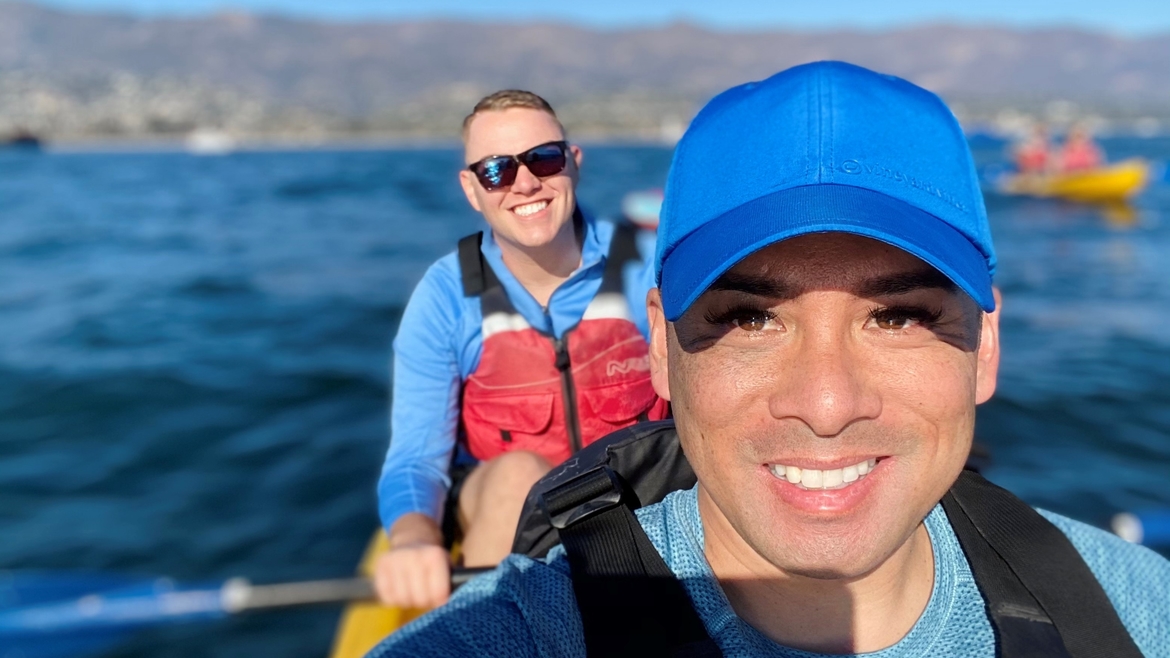BY KYLE ELLIOTT
This year marks a decade since I received my initial mental health diagnoses. I was diagnosed with generalized anxiety disorder (GAD) and obsessive-compulsive disorder (OCD) my sophomore year of college. I am incredibly proud of the progress I made since my original diagnoses as well as my subsequent diagnosis of post-traumatic stress disorder (PTSD) following a sexual assault in graduate school. Yet, there are still things I wish I would have known when I was younger.
In the hopes that this will also be helpful to you and your mental health, here are eight things I wish I could have said to my younger self:

1. It’s OK to ask for help.
Asking for help will be critical to your success. The most transformative changes in your career and life happened after you asked for help. You asked your parents to sit on the phone with you in silence after you developed PTSD. You asked your partner to help you slow down and relax. You asked your therapist to help you end friendships that no longer served you. The more you asked for help, the more you achieved.
2. Don’t work so hard.
Between full-time school, full-time work, and a growing business, you worked between 80 to 100+ hours per week throughout graduate school. This trend followed you from your undergraduate studies. It took time and lots of therapy, but you learned you do not have to work to show your worth. You are worthy regardless of your output. Let me repeat that: You are worthy regardless of your output.
3. You will love therapy.
You will not just benefit from therapy. You will love therapy. It wasn’t until after five years of migraines and hundreds of doctor appointments that you received those mental health diagnoses and a referral to a therapist. As soon as you began therapy, you loved it. Through therapy, you learned to quiet your anxiety, “Mr. Peanut,” and learn how to relax — finally. Invest in therapy. The ROI of therapy will be immeasurable.

4. Recovery is possible.
Recovery is not just possible, recovery is achievable. While it will take time, energy, and effort, you will achieve recovery. This does not mean you will not experience symptoms of your mental health challenges. What this means is that you will be in a space where you are able to effectively manage the symptoms of your mental health challenges.
5. Practice self-love.
Move beyond self-care to a place of self-love. Self-care is focused on taking care of yourself physically and mentally. Self-love takes it a step further — showing love and kindness to yourself. While you practice regular self-care with your frequent Starbucks trips and Ben & Jerry’s splurges, I want you to show love to yourself. You are valuable. You are special. You are unique. You are awesome. You are fabulous.
6. Find mentors — early.
Seek out mentors and seek out mentors early. Identify, connect, and build relationships with people who are where you want to be 5, 10, 20+ years from now. Do not stop investing in mentors to help you develop your knowledge and skills. Mentorship and coaching will be critical to your success — in your work, your business, and your life.
7. Seek out a support network.
Your support network will be critical to your mental health and recovery. Make connections with people who understand you and your lived experiences. Be sure to join The Stability Network, a growing movement of people who are living and working with mental health conditions as well as sharing their stories to inspire others and change how people think about mental health.

8. Own your fabulousness.
There is no one like you. Not a single person. Lean in to what makes you different. Share what makes you different. Sure, some people may be intimidated, and you will turn them away. However, far more people will be encouraged and motivated to also own what makes them different. You will be an inspiration to others. Countless people will tell you that your authenticity and storytelling changed their lives. Be you. Own your fabulousness.
Kyle Elliott is the founder and career coach behind CaffeinatedKyle.com. His goal is simple – to help people find jobs they LOVE (or at least tolerate). As a queer person, male sexual assault survivor, and someone living with mental health conditions, Kyle is proud to get to use his voice and platform to help others share their stories, get help, and achieve recovery. He is an official member of the invitation-only Forbes Coaches Council, a member of the Gay Coaches Alliance, and a Certified Health Education Specialist (CHES). You can connect with Kyle at CaffeinatedKyle.com or on Instagram @CaffeinatedKyle.


One response to “8 Things I Wish I Could Tell My Younger Self”
Thank you for letting me share me story of recovery!